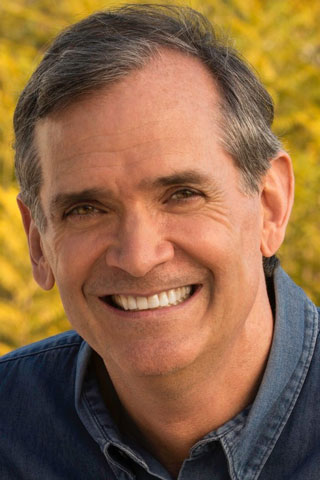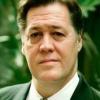
Sean Strub
 BODY COUNTS: A MEMOIR OF POLITICS, SEX, AIDS, AND SURVIVAL
BODY COUNTS: A MEMOIR OF POLITICS, SEX, AIDS, AND SURVIVAL
By Sean Strub
Published by Scribner, $30
Like many another politically inspired youth from the heartland, Sean Strub arrived in Washington, D.C., in 1976 dreaming of a role in democracy's big picture. An altar boy back in Iowa City, Iowa, he came from an Irish family of long U.S. lineage to Georgetown University, "a fine Jesuit school," in the words of his father, a physician. Through family contacts he landed a well-paying, low-rung job in the Senate, operating an elevator 20 hours a week. He saw the power masters up close.
Body Counts is the remarkable story of a young man's sexual self-discovery and the evolution from political activism to near-death, into a spiritual awakening that builds like a minor key symphonic crescendo.
Strub spent little time on campus as he got deeper into Democratic Party politics. After coming to terms with his sexual orientation, he shifted his energy into gay rights activism. As the traumatic shocks of the AIDS epidemic hit in the 1980s, he became a magazine editor in New York City. His candor is poignant and at times morally unsettling:
I also feared stigma. Some families were already refusing to allow gay male relatives to join family holidays or to hold young nieces and nephews. Those who tested positive were sometimes welcomed at holiday meals on the condition that they use disposable utensils. People known to have AIDS lost their jobs and apartments. ...
I disclosed my health concerns when I dated someone, but often not to one-time hookups. Among my friends and me, the assumption was that we had all been exposed many times over the years, and who got sick was as much a function of unknown factors as it might be having slept with the wrong person.
That brittle fatalism about AIDS is a thematic strand that turns into an elegy, of sorts, on the lavender revolution as it lost the bloom, when the heyday of gay liberation turned into a collective confrontation with premature mortality, and a media campaign on Congress and presidents for greater medical research. If you think Bill Clinton a sellout for gutting Wall Street oversight legislation, you'll cringe at him for other reasons in this book.
It is not giving away the potent ending to disclose that Strub got so sick from AIDS he nearly died. His sections on New York when Andy Warhol was riding high and the glow cast by celebrities and politicians supporting the fight against AIDS are beginning to drag when Strub pulls off a small literary miracle. In shifting the focus to his own medical struggle, he moves from a harrowing account of body lesions, pharmaceuticals and despair to the raw materials of hope. Even with the foreknowledge that the guy had to live in order to write the book, I found myself turning pages with a morbid curiosity to see just how, or in what condition, he would manage to live.
Strub confronts long-buried memories of being abused by two men (not priests) in his teenage years. "One was an usher in my home parish and the other a senior faculty member at the Jesuit boarding school I attended," he writes.
He connects both this abuse and "Catholicism's psychological torment of me as a child" to his unhealthy sexual relationships and promiscuity as an adult. "I don't disclaim responsibility," he writes, "but I now believe that the sexual and psychological abuse I suffered as a child laid the groundwork for the behaviors I engaged in as an adult that led to acquiring HIV. If gay men as a whole had less shame and self-hatred imposed upon them by society when they were children, I wonder if we might have been more moderate in our sexual behaviors as adults when we finally found communities of our own where we could escape society's torment and be with each other."
To readers with a natural skepticism on recovered memory, Strub's account of his confrontation with the two men is persuasive, and a step in the spiritual journey as he broods on the abusers as protective figures at a time when he felt acute vulnerability for not being rugged as he got bullied. His encounter with each of the old men, late in the narrative, hints at forgiveness.
"One of the lessons of Catholicism that stuck with me, even through the periods when I was most furious with the Church, was that life's meaning is found in contemplation, penance, and service," writes Strub. "Of these three, my only real talent is in service. I've always been more interested in action than reflection."
The layers of self-reflection lift Body Counts to a level of storytelling that is likely to stay with readers long after the reading part is done.
[Jason Berry is the author of Render Unto Rome: The Secret Life of Money in the Catholic Church.]




